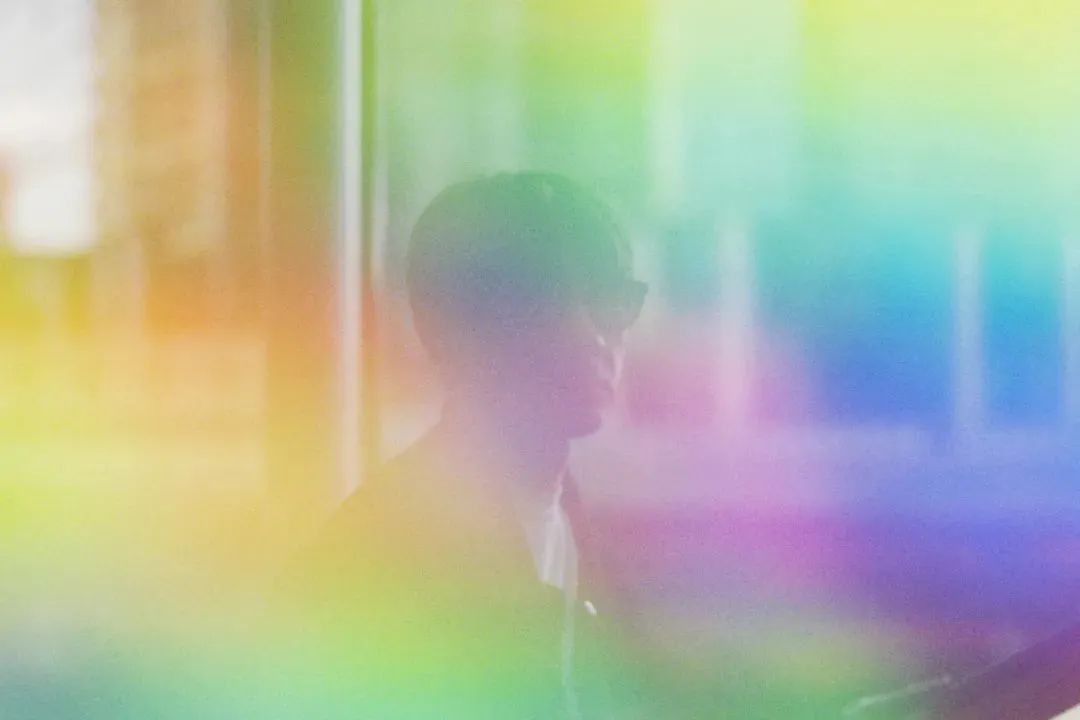
Born in 1969 in Tokyo, Japan, Koyamada started to form a band when he was in middle school, and his background was the late 1980s when Japan's economy was booming. Flipper's Guitar, which he formed with Kenji Ozawa, embarked on a three-studio album adventure based on the two members' shared love of British guitar-pop during a brief three-year period from 1989 to 1991, dramatically changing the course of contemporary Japanese pop music.
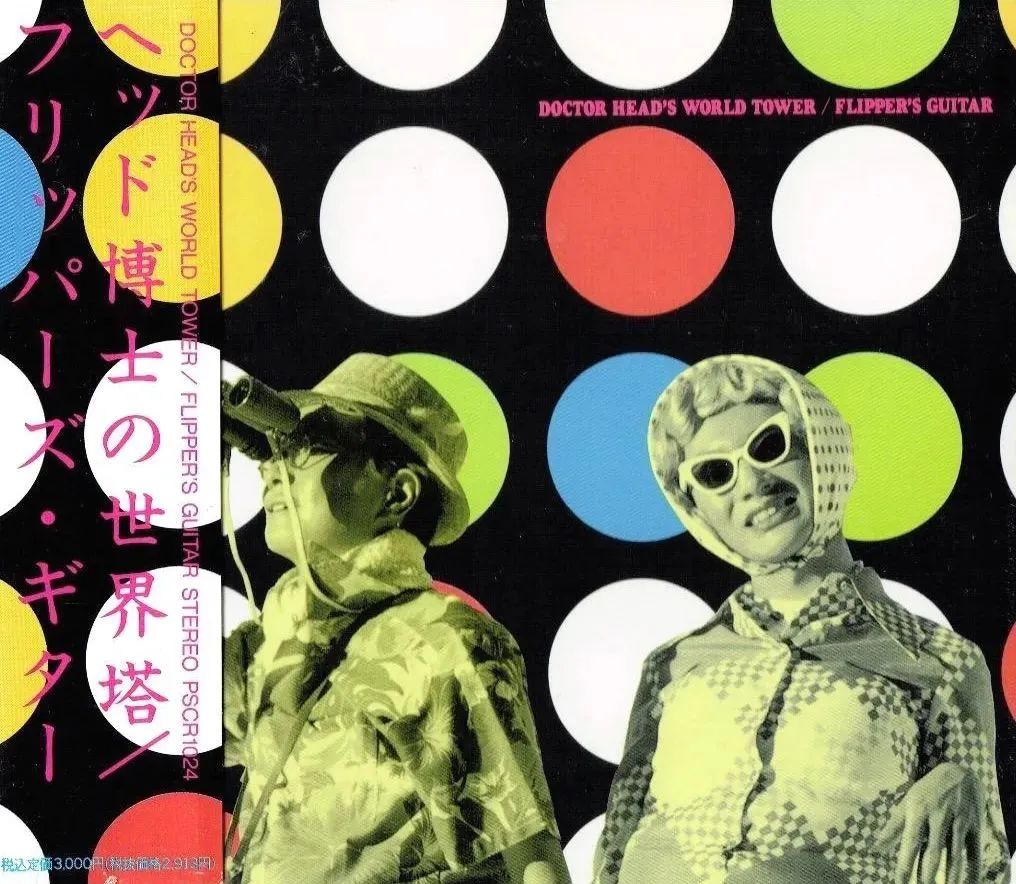
Doctor Head's World Tower album artwork
Green jangle pop melodies, sunny bossa nova chords, sometimes gusty alternative rock distortion, the most fashionable European acid house dance rhythm at the time, plus pop culture sampling and urban life recording clips... The variety and richness of Flipper's Guitar accumulated in its own music, full of the fine atmosphere and symbols representing taste familiar to the public, but also the abstraction and rebellion against this whole - in the "Heisei boom" "recorded" by Yamada and Ozawa, Shibuya and the whole Japan behind it, is "open to everyone". It is also precisely screening the "evolutionary food"; The band's open creative mentality is in line with the temperament of The Times, which is a kind of swallowing, absorbing, and thus creating a new world of unlimited ambition. The band's stunning swan song, Doctor Head's World Tower, released in 1991, was like The Stone Roses, Happy Monday, My Bloody Valentine, Primal Scream, Even The Beatles, placed in neon Japanese street Windows - you'd be hard-pressed to find an album that borrows directly from others while being so self-aware, confident and self-conscious.
After the band disbanded, Koyamada officially launched a solo project under the name Cornelius. Since The release of his debut album, The First Question Award, in 1994, he has quickly entered a new phase of creative explosion, with the 1997 album Fantasma, A monument to the complex Shibuya musical aesthetic of the period - French, Brazilian, German perpetual motion, and 1960s night nightingale-like pop tunes, catalyzed by a lightness and humor drawn from pan-pop culture and lifestyle, make for an unpredictable and mesmerizing experience. Cornelius' solo projects gave Koyamada greater freedom outside of composition, pushing him to push his multi-layered production techniques to the extreme. When the album hit the U.S. market, it shocked critical Western critics and fans, and established Koyamada's place in the world music scene.
Looking back from today's perspective, the phrase "Godfather of Shibuya music" is more like a succinct description of Kigo Yamada at that time. After a short but brilliant career with Flipper's Guitar and a turbulent explosion of Fantasma, Koyamada entered a period of self-renewal and began to build up. In his watershed album Point (2001), he internalized trends from all directions into a kind of "momentum" - focus, precision.
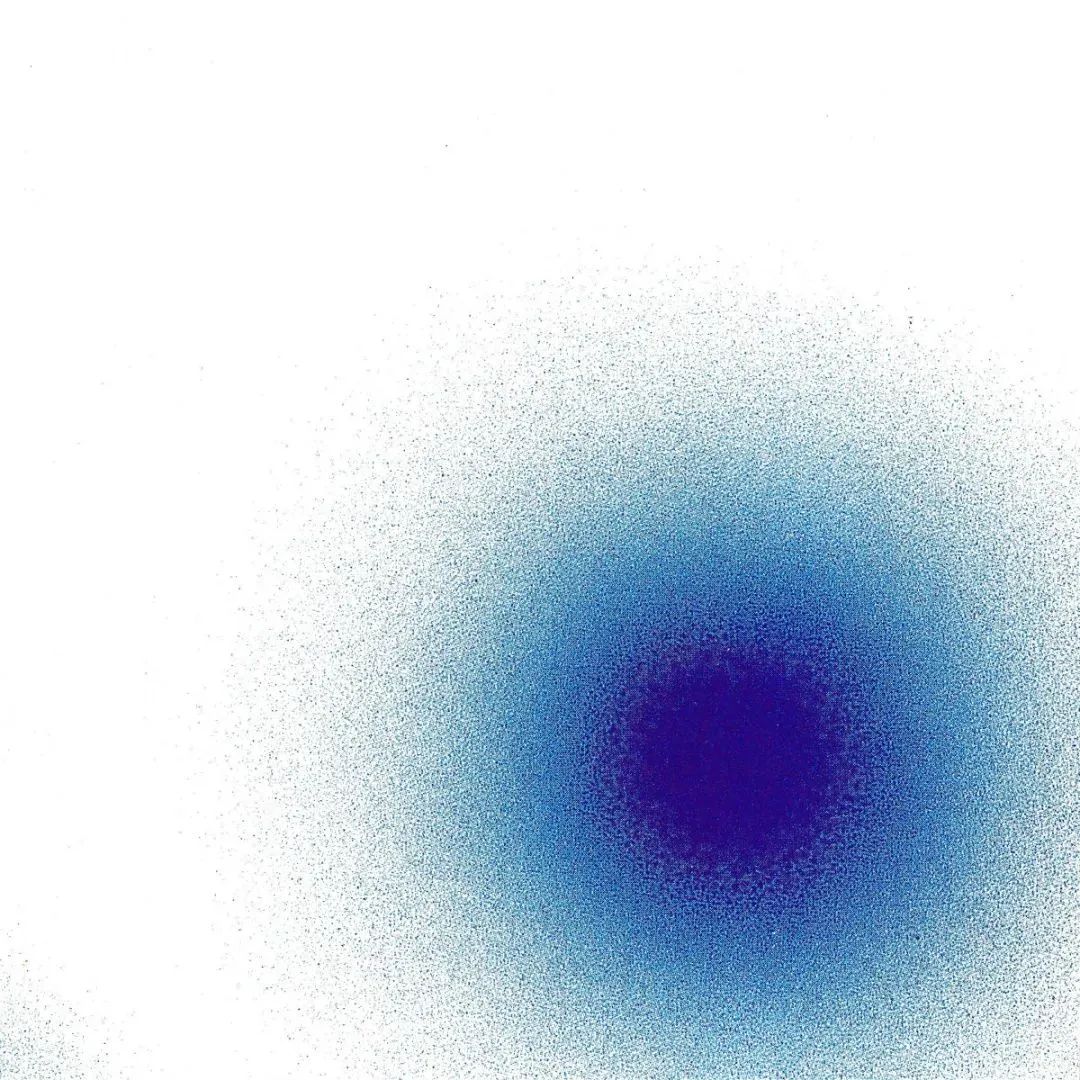
Point album cover
By delving into and refining his studio production techniques, Koyamada has developed a transcendent style that is "in the dust, out of the desire" - while sharing the same exotic, other popular musical elements and rich sampling, Point is less of a fast-changing, up-and-down teenager than his previous works. Focus on the internal logic of sound and frequency, presenting natural, organic textures.
Restraint and choice, so that Koada Kigo gradually faded the trend of color, began to reveal the master bearing. At the time, Hosono admired Point so much that he asked Yamada to help produce Takahashi's next project, which eventually led to the duo of Hosono and Takahashi, Sketch Show.
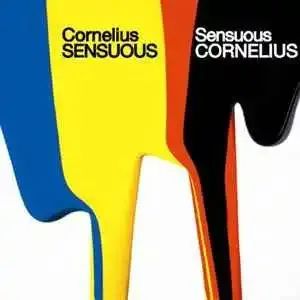
In 2006, Koyamada continued his settled production philosophy, bringing the art of sound manipulation to Sensuous, the most conceptual album of his career. After the completion of this abstract art-like sound picture, his creative desire was fully displayed and satisfied, and he was able to temporarily put aside his personal creation, and more deeply participate in some high-level cooperation and performance compared with the Japanese music predecessors he once looked up to.
During this period, he was a touring guitarist for the Yellow Magic Orchestra, playing overseas shows and festivals with Ryuichi Sakamoto, Harutomi Hosono and Yukihiro Takahashi; He also participated in the writing and recording of Ryuichi Sakamoto's solo album, CHASM, and shared the stage with famous ambient electronic music producer Fennesz and his childhood idol, former JAPAN band member Steven Jensen, to complete Ryuichi Sakamoto's solo live performance. Takahashi was also recruited to form a solo touring band - along with star musicians such as Towa Tei, Yoshitoku Sahara, Tomohiko Kwon and LEO Imai - which led to the start of another band project, METAFIVE.
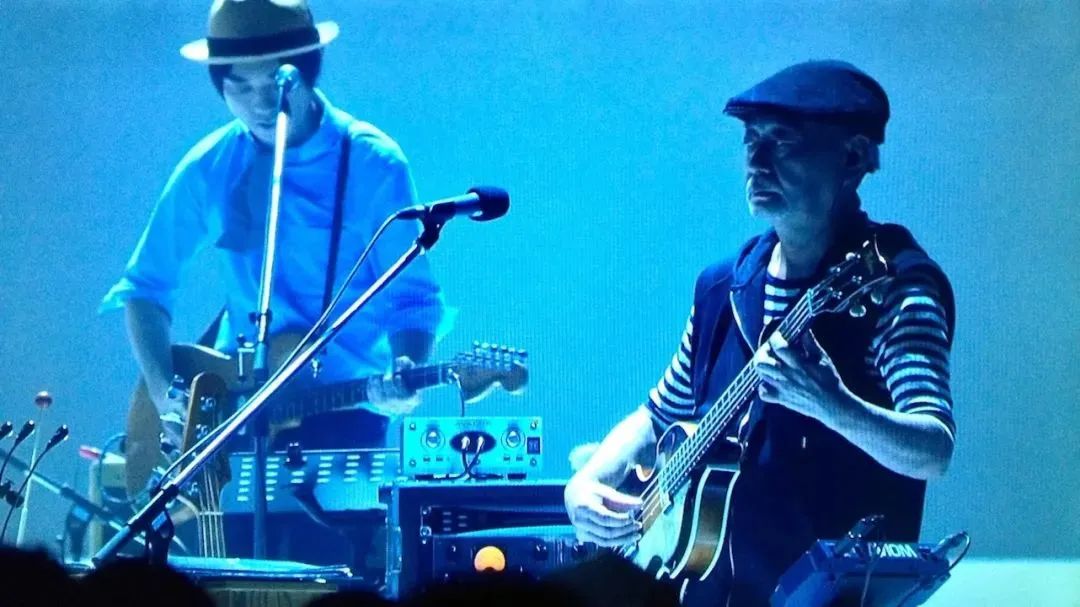
Keigo Yamada and Harutomi Hosono
The wide attention and recognition of different musicians also attracted the favor of avant-garde artist Yoko Ono. After being recommended by Yuka Honda (Cibo Matto, Plastic Ono Band) and Sean Lennon (son of Ono and Lennon), Yamada joined Yoko Ono's Plastic Ono Band around 2012. He worked on two albums and a tour.
In the mid-2010s, though he has not published a solo work, Koyamada is still able to show his diverse understanding of music in a wide range of cross-style collaborations. In addition to his collaborations with musicians, he has also worked on the theatrical animation of ARISE in the Shell and the NHK children's show Design Ah! Such as film and television works to create or dark or bright soundtrack music.
It was not until 2017 that the name of Cornelius finally reappeared, with another evolution, and once again refreshed our understanding of Koyamada Keigo. In the album Mellow Waves after 11 years, the tidal reverberation makes everything secret. The rapid accumulation of his band days, the deep deliberation of his personal days, and the benefits of long collaborations with many of the most important figures in Japanese music history, make Koyamada more than a simple and clear style or framework. The familiar sounds of period origin, sampled and rich with established musical elements, as well as classic techniques such as melodious harmonies and guitar effects, all lose their appearance and melt into a dream of unity of thought under the influence of his increasingly refined skills. The soft and flexible sound space provides a suitable background for the combination of emotion and environment, which is the focus of Yamada's creation.
It was not until 2017 that the name of Cornelius finally reappeared, with another evolution, and once again refreshed our understanding of Koyamada Keigo. In the album Mellow Waves after 11 years, the tidal reverberation makes everything secret. The rapid accumulation of his band days, the deep deliberation of his personal days, and the benefits of long collaborations with many of the most important figures in Japanese music history, make Koyamada more than a simple and clear style or framework. The familiar sounds of period origin, sampled and rich with established musical elements, as well as classic techniques such as melodious harmonies and guitar effects, all lose their appearance and melt into a dream of unity of thought under the influence of his increasingly refined skills. The soft and flexible sound space provides a suitable background for the combination of emotion and environment, which is the focus of Yamada's creation.
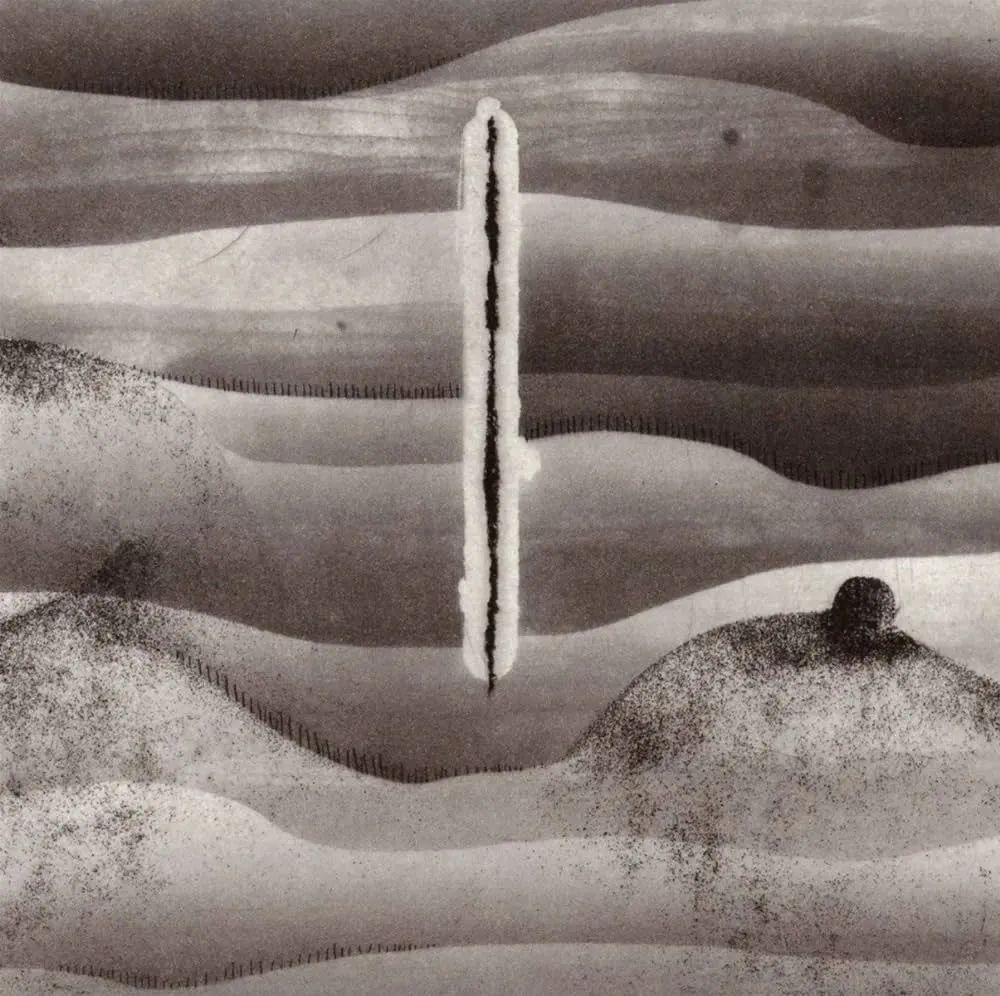
Mellow Waves album cover art
In its 50th anniversary issue in April 2019, Japanese Music Magazine published a list of the "Top 100 albums of the past 50 years of Japanese music" jointly selected by magazine editors and music critics. Among them, Koyamada's Three albums with Flipper's Guitar included Doctor Head's World Tower (No. 12), Camera Talk (No. 45), and Three Cheers for Our Side (No. 87) Fantasma (No. 31), Sensuous (No. 37), and Point (No. 44), all under the name of Cornelius, charted six times. Mellow Waves is also mentioned outside the circle of hundreds (135th).
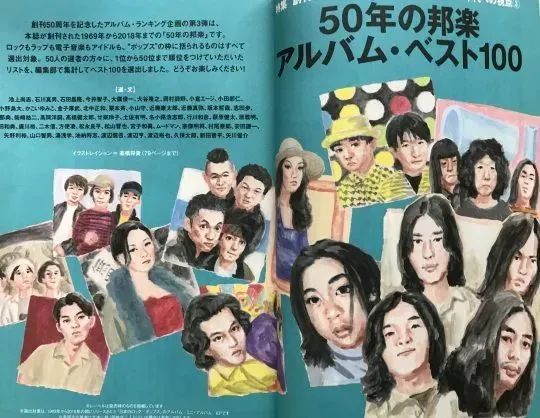
Music Magazine Screenshot of the "Top 100 Albums of 50 Years of Japanese Music" feature
The portraits of Keigo Yamada and Kenji Ozawa are in the center right below the headline
While this impressive list is a reminder of Koyamada's importance, it also reflects the fact that he has maintained his creativity at different times.
At the end of May 2024, Koyamada will bring Mellow Waves' sister title, Dream In Dream, to Chinese music fans. Despite its more minimalist leanings, this new work allows fans to detect the threads and meanings that run through Cornelius's career. It is Kigo Yamada's rippling thoughts on Japanese music and culture. The complex ripples are always clear, reflecting the glory of the future, but also allowing people to glimpse the riverbed of history and inheritance in the twinkling.
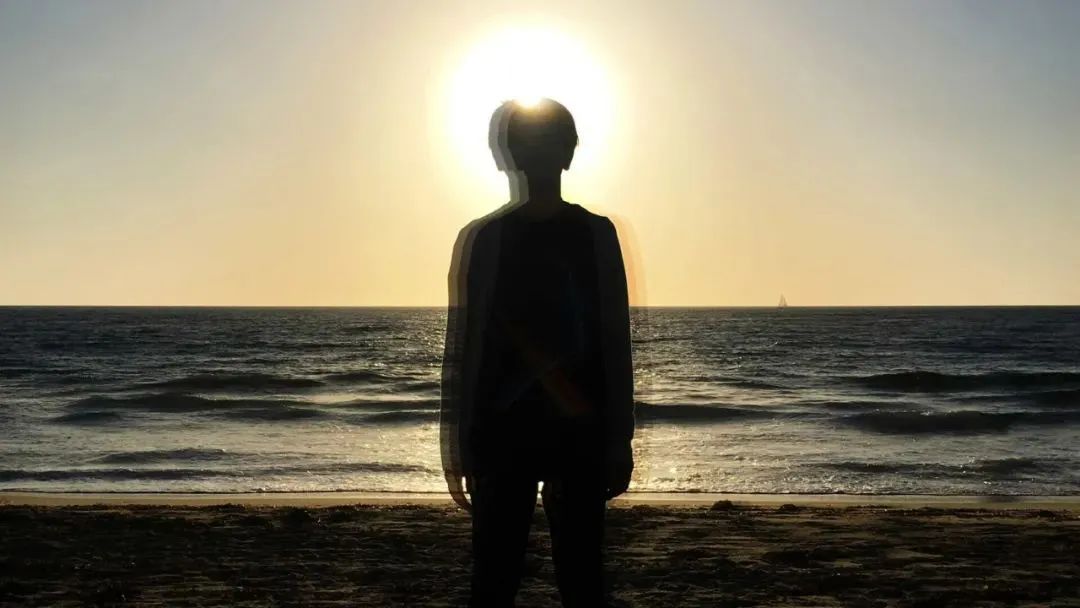










 Cornelius' Dream within a Dream '2024 tour Shanghai-Media center-Shanghai Xingzai Cultural Communication Co., Ltd
Cornelius' Dream within a Dream '2024 tour Shanghai-Media center-Shanghai Xingzai Cultural Communication Co., Ltd